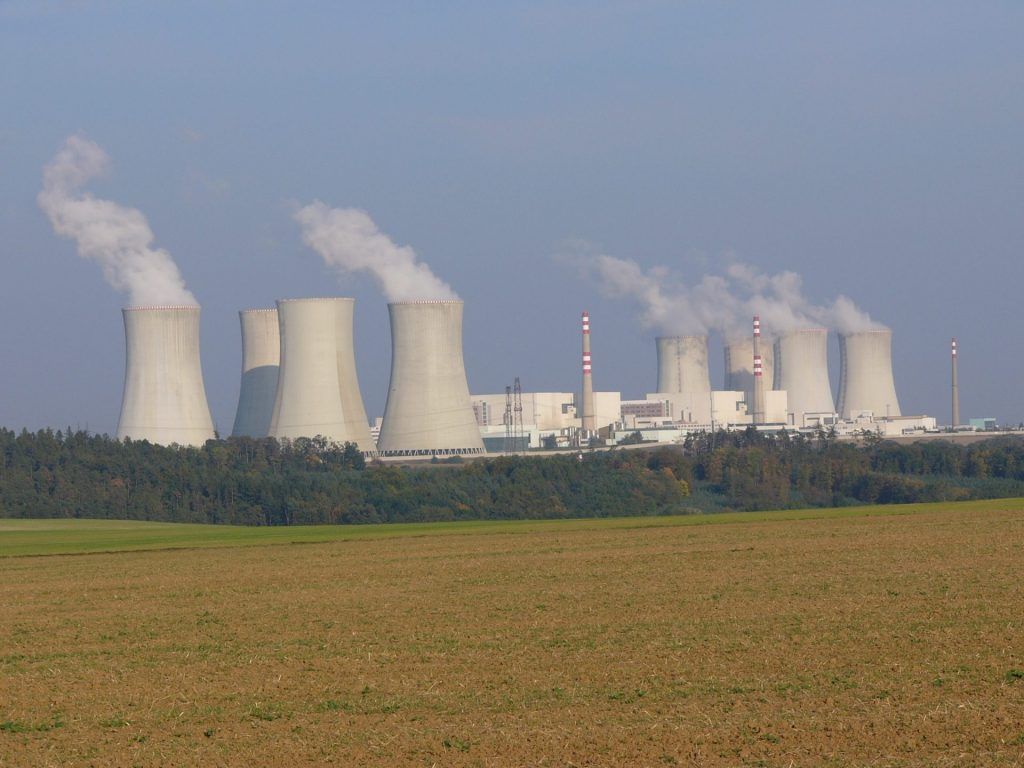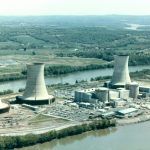Nuclear power: A question of risk and balance
By Joyce Connery | March 11, 2021
 A nuclear power plant in Dukovany, Czech Republic. Photo taken by Petr Adamek in October 2005.
A nuclear power plant in Dukovany, Czech Republic. Photo taken by Petr Adamek in October 2005.
Editor’s note: This article is part of a collection of expert commentary on nuclear safety published on the tenth anniversary of the Fukushima disaster, produced in a collaboration between the Project on Managing the Atom at Harvard Kennedy School and the Bulletin.
All human endeavor entails risk. We constantly evaluate, manage, mitigate, and balance risks against benefits. Nuclear energy is no different. To say that accidents are inevitable is to equate all risk as equal, which we know is not the case. Risk is not measured by the occurrence of an accident, but by the rate at which accidents occur and by the magnitude of the consequences.
Driving a car may be riskier than walking, except in extreme weather. We choose the car for comfort, to save time, and to expand our horizons. Because driving is risky, we impose rules as a society and practices as individuals. Societal rules dictate that drivers have licenses that prove proficiency, that cars be designed for safety, that seatbelts be worn, that airbags be installed, that rules be universal and shared, and that drivers are not impaired.
Whenever there are serious or repetitive accidents, we investigate to determine contributing factors; we may redesign or recall equipment, or modify the roadway. Consumer advocates and insurance companies “risk rate” vehicles. Millions of people in the US drive cars every day, and about 90 people a day die in car crashes.
Regulations and best practices do not eliminate accidents, but they reduce accident rates and consequences to levels acceptable to society. That is how we balance risks and benefits.
The nuclear industry has a very good record in terms of casualties and accident rates, but there is concern about the health and safety of the public and the environment based on the nature of radioactivity. Since the dawn of the nuclear era, society has made a significant effort to regulate and minimize risks from nuclear power.
Each nuclear accident has resulted in deep reflection and reanalysis of the practices to prevent, mitigate, and recover; and there has been a continuous improvement in safety. From the post-Chernobyl mantra that “an accident anywhere is an accident everywhere,” the nuclear industry has held itself accountable, not just through regulations, but through peer-to-peer evaluations and harmonization of standards by organizations such as the Institute of Nuclear Power Operations and the World Association of Nuclear Operators.
Given that nuclear power is a high-density, baseload electrical generator that does not contribute to greenhouse gases, many people look to it for the essential, uninterrupted electrical supply that society desperately needs in order to combat climate change and improve living standards. All of the Intergovernmental Panel on Climate Change scenarios require more nuclear power in order to meet the goals of the Paris Climate Accord.
If nuclear power entails risks, so does abandoning it. The risks of abandonment include the known consequences of climate change, and the resulting significant increase in human suffering. In a climate-constrained world, much of the world’s population would NOT have access to electricity without nuclear power. And, as February’s US winter storms have shown, without high-reliability electricity, extreme natural phenomena become more deadly. Abandoning nuclear power would unbalance the risk equation, increasing societal risks while decreasing societal benefits.
Disclaimer: The views expressed are the author’s and do not represent the views of the Defense Nuclear Facilities Safety Board, the Energy Department, or the United States government.
Read more expert commentaries in this collection »
Together, we make the world safer.
The Bulletin elevates expert voices above the noise. But as an independent nonprofit organization, our operations depend on the support of readers like you. Help us continue to deliver quality journalism that holds leaders accountable. Your support of our work at any level is important. In return, we promise our coverage will be understandable, influential, vigilant, solution-oriented, and fair-minded. Together we can make a difference.
Keywords: climate change, fukushima10, nuclear accountability, relative risk
Topics: Nuclear Energy, Nuclear Risk
















What about spent fuel storage and the world’s inability to so far find a suitable place that will no endanger future generations? Does nuclear power make sense when we honestly calculate the back end cost (forever) with the front end value (finite)?
I’m afraid to say that this article read really like an advertisement of nuclear power.